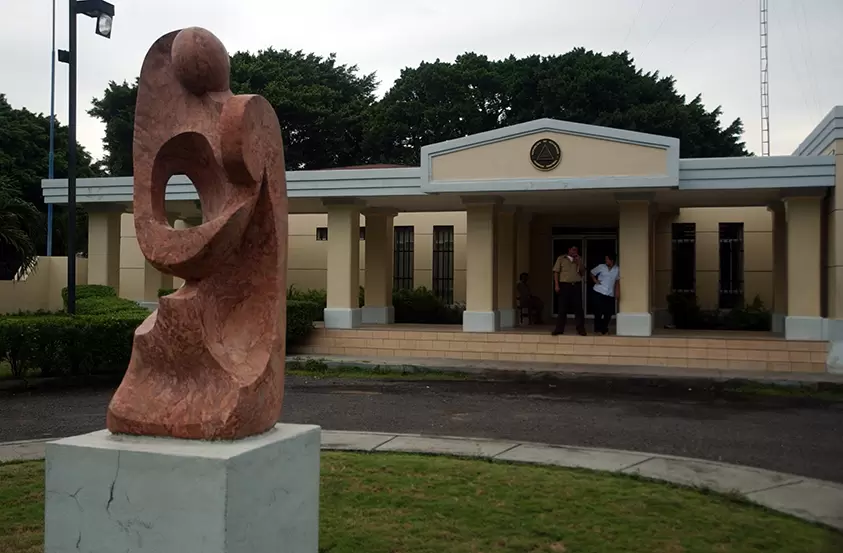Nicaraguan state institutions ended 2024 during one of the most significant periods of withholding annual reports and restricting public access to information. While some entities stopped sharing data years ago, particularly after the sociopolitical crisis, others ceased releasing information following public servant layoffs in late 2023 and this year’s government restructuring.
The lack of official data spans key issues crucial to the country’s development, including public safety, healthcare, poverty levels, unmet needs, housing conditions, and school enrollment. Additionally, the limited information that is available has become increasingly outdated, making it less useful for comparisons, analysis, or planning.
Although the Ortega-Murillo regime has enforced a policy of state secrecy and suppression of official information for its 17 years in power—especially within institutions directly controlled by the Presidency—this restriction has now spread to other state entities independent of the Executive, notes sociologist Elvira Cuadra.
“This includes the Judiciary and related institutions. It has become extremely difficult to find data from public institutions that previously published annual reports, statistical analyses, and other critical information for the population,” she explains.
Limited and Disorganized Information

Official information on critical national issues is now largely limited to sporadic, disorganized updates delivered by Rosario Murillo—regime spokesperson, vice president, and wife of dictator Daniel Ortega—via regime-controlled television broadcasts.
Some additional data can be found in reports from pro-government media outlets, but these lack organization or analysis. Instead, they function as political propaganda, designed to portray the regime as efficient, despite the Nicaraguan state’s legal obligation to provide impartial accountability and publish results, as mandated by the Comptroller General’s Office, which is also under Ortega-Murillo’s control.
The withholding and distortion of information serve a clear purpose: to present the Ortega-Murillo administration as effective and to create the illusion of “normalcy” in Nicaragua, Cuadra explains.
“Many institutions manipulate data to create a false impression that everything is fine and there is no crisis in the country. This bias is deeply damaging and undermines the credibility of government-generated data. Transparency and accountability in public administration are fundamental rights,” Cuadra explains.
Institutions like the National Police, Ministry of Health (Minsa), Ministry of Education (Mined), and the National Institute of Information Development (Inide) are tasked with collecting essential data on national development. This information should serve as the basis for designing effective public policies.
“We need rigorous, accurate, and consistently updated information to develop sound public policies. Without it, this becomes impossible—and that’s exactly what we’re not seeing in Nicaragua,” Cuadra states.
The absence of reliable and up-to-date public data not only prevents the creation of viable and relevant public policies but also makes it impossible to evaluate their effectiveness. As a result, it is unclear what information the Nicaraguan government relies on to implement its programs or devise strategies and plans. Furthermore, the public is unable to hold these processes accountable.
Lack of Data Enables False Narratives

Sociologist and researcher Juan Carlos Gutiérrez cautions that the dictatorship leverages the lack of information to fabricate false narratives on critical issues like public safety. The regime claims a reduction in crime rates but offers no evidence to support these assertions.
The most recent national security data is nearly four years old, as the National Police last published its Statistical Yearbook in 2021.
This yearbook contained 44 key indicators on national security, including annual complaint volumes, historical trends, and police response rates. It also tracked national and regional crime activity, homicide rates per 100,000 inhabitants, robbery rates, the likelihood of becoming a crime victim, and data on major crimes and societal violence.
The yearbook also included data on traffic accidents, annual suicide rates, and detailed reports on domestic and sexual violence. Today, however, the National Police limit themselves to weekly or biweekly briefings that highlight supposed security “achievements.”
“Hiding this type of data allows the regime to create false narratives of stability and security. In the end, people are left with a fragmented understanding of reality, contrasting their own experiences with the propaganda aired by official media,” Gutiérrez explains.
The absence of updated data also presents a significant challenge for the future, as it will make it difficult to compare and project crime trends, he adds.
More Institutions Stop Publishing Reports

Judicial institutions also joined the trend of withholding public information in 2024. While the Judiciary had already begun phasing out the publication of documents like the Institutional Memoir—last released in 2021—other entities, such as the Institute of Legal Medicine (IML), which had consistently published bulletins and annual reports, ceased operations altogether.
For nearly four years, in the absence of systematized data from the National Police, IML bulletins and yearbooks served as the only official sources for tracking violence in the country through forensic medical records.
However, following the regime’s crackdown on Judiciary staff in late 2023, the IML stopped releasing updates. Its last yearbook was published in 2022, and no bulletins were issued in 2024.
IML bulletins previously revealed that women and girls were the primary victims of violence, dominating three of the four categories analyzed by the institution: domestic violence, sexual violence, and psychological harm.
The yearbooks provided even more comprehensive forensic medical data, offering critical insights into both victims and perpetrators, as well as detailed records on various types of deaths and violence.
“The absence of this data means we have no understanding of the scale of deaths caused by accidents, homicides, suicides, or other forms of violence in the country,” Gutiérrez explains.
Without IML reports, it becomes impossible to evaluate the transparency and efficiency of forensic investigations, Gutiérrez warns. “Political secrecy cannot conceal the gaps created by this lack of data.”
He also emphasizes that outdated or missing information allows the Ortega-Murillo regime to misrepresent Nicaragua’s situation on the international stage.
Official data from state institutions is frequently used in comparative analyses by the United Nations and other global organizations.
“For example, they compare homicide rates between Nicaragua and Costa Rica, but the reality is distorted due to the opacity of Nicaraguan data. As a result, the comparisons are unreliable,” Gutiérrez explains.
Institutions Fail to Fulfill Their Roles
Another way the dictatorship manipulates public information is by excessively delaying reports, rendering the data presented irrelevant to current realities. Some studies, when conducted, show significant gaps between iterations.
Gutiérrez cites the National Population and Housing Census as an example, which has gone almost two decades without being updated. While the regime conducted the census in April 2024, the final results have yet to be released.
The absence of up-to-date census data leaves Nicaragua without a clear understanding of its population, socioeconomic characteristics, challenges, and development opportunities. “It’s as if the state is operating blindly,” he says.
Despite Inide’s stated goal of providing public access to reliable information, the institution has lost its role as a tool for responsible governance and the effective measurement and evaluation of public policies.





